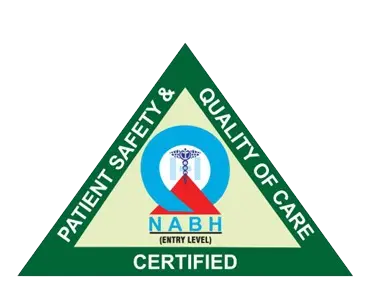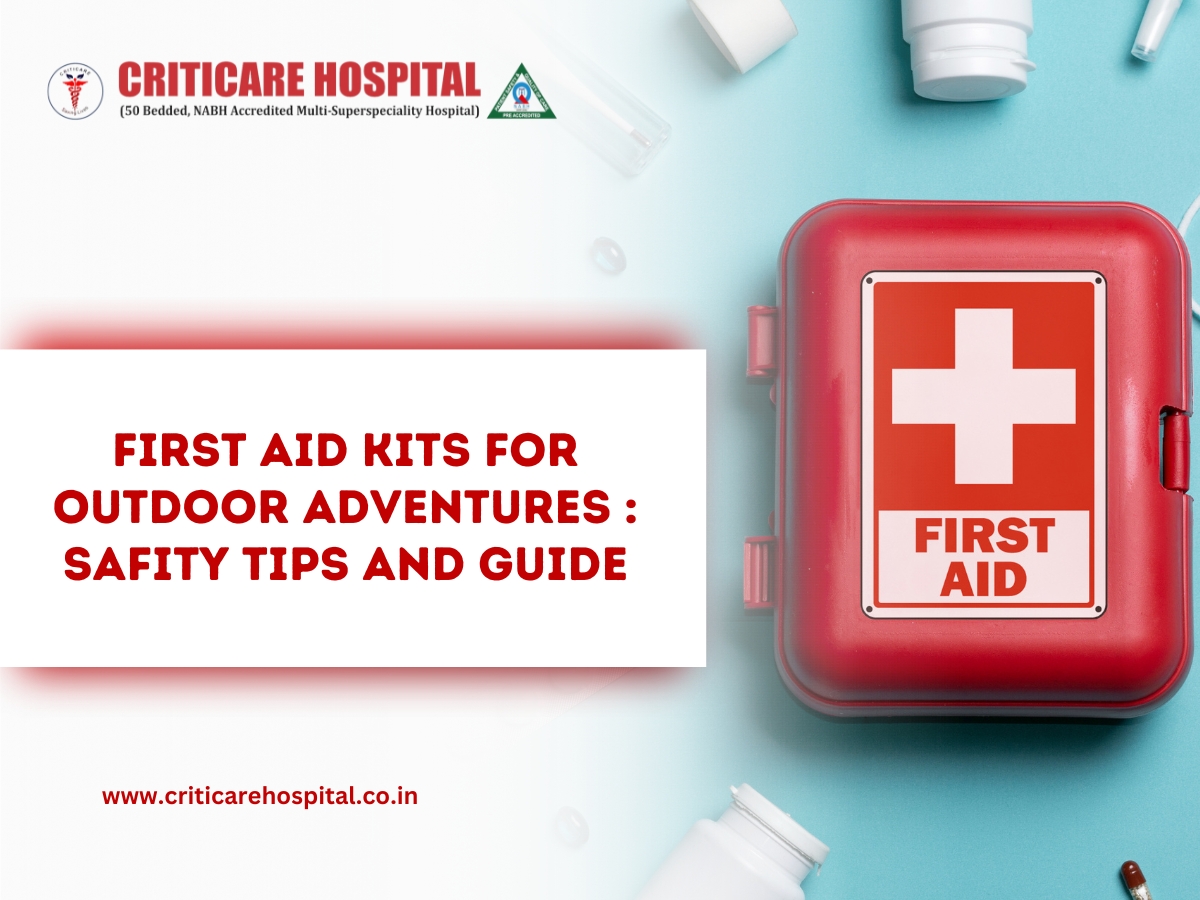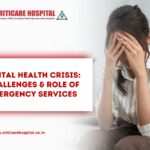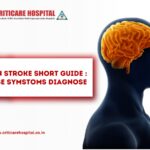No matter how its journey is across the hills, in the wilderness or just a road trip, nature may be unreliable. A wrong step, a bite of an insect, a painful headache, or even an ordinary cut could go wrong and be potentially fatal unless you are prepared. That is where a decent supply of a first aid kit is not only useful, but imperative. It is your initial defence mechanism prior to having professional medical assistance.
Outdoor places usually do not have easy access to hospitals, pharmacies, or even mobile networks. Basic medical supplies will solve a small problem and save from a potentially big disaster. Preventive care is something we place great value on at CritiCare Hospital, and good first aid kits are one of the wisest preventive measures an adventurer could carry.
What Is Special about an Outdoor First Aid Kit?
Compared to the kits used in home or office environments, outdoor adventure kits must address more scenarios. Outdoor setting presents unusual health hazards, such as insect bites and blisters, altitude sickness, minor burns and so on.
In addition, kits must be small, waterproof, and lightweight. It does not require an entire pharmacy but rather the appropriate items and proper functioning in remote locations.
Here are the things you should know when constructing or purchasing a practical and smart first aid kit to use outside.
Important Elements You Can Not Omit
So we can put it into simple categories:
Painkillers Items
These aid you in the treatment of cuts, scrapes, blisters, and small amounts of bleeding:
- Gauze streptomycin pads
- Various sizes of adhesive bandages
- Antiseptic wipes
- Antibacterial ointment
- Medical Tape Waterproof
- Tweezers (to prick out splinters, thorns)
Medications
Be sure to keep some remedies for common problems:
- Paracetamol or Ibuprofen (pain and fever)
- Antihistamines (allergy)
- Acidity/ indigestion (antacids)
- Anti-diarrheal tablets
- Oral rehydration salt (ORS)
- Anti-motion (car sickness) pills( particularly during treks and road journeys)
Include their medications as well, in case you or your other travelling companions have certain medical conditions (such as asthma or diabetes).
Insect Protective Animal
- Mosquito repellent creams or sprays
- Bite anti-itch creams
- Snake bite kit (particularly in the forest or hilly territory)
Protection against Burns & Sun
- Burn cream
- Aloe vera gel
- SPF 30 Sunscreen or higher
- SPF Lip balm
Basic Tools
- Scissors
- Digital thermometer
- Hand-held-sized flashlight or headlamp (provide some spare batteries)
- Safety pins
- Swabs and cotton balls
- Disposable gloves (a couple of pairs)
- Lightweight thermal emergency blanket
Adventure-Specific Additions
Based on the nature of the trip, the following are some additions to be taken into account:
- High Altitudes: Diamox (only by doctor), pulse oximeter
- In the case of Water Activities: Waterproof bandages, antiseptic spray
- In cold climates, hand warmers, additional thermal blanket
- In cases of Long Treks: Blister treatment pads, electrolyte tablets
Smart Packaging: 5 Packing Tips
Do not make everything baggage. These are some tips on how to pack smart:
- Store items in waterproof containers or nylon.
- Label everywhere soon (wounds, medication, tools) so I can find stuff fast.
- Include necessary urgencies (e.g. CPR guide or helpline numbers) in the kit.
- Prescription medicines should be kept, whenever possible, in their original packages.
- Inside, put a checklist of the contents, checking and last checked or the last replaced items.
Guidelines on the safe use of first aid in outdoor conditions
One thing to have is an acute care kit; another thing is to use the kit properly. See the following safety pointers:
- Activate simple first aid skills before you go on the tour. Short workshops or YouTube tutorials are useful.
- Gain control in cases of emergencies. When panic sets in, it increases the predicament.
- Bandage clean wounds.
- Wear gloves or sanitise your hands before ever treating someone.
- Unless you are sure it is life-saving, it is not advisable to administer unknown medication to others.
- Follow up on the first aid. In case they get more severe, get urgent assistance at once.
Seek Medical Help When?
Not everything can be dealt with by a first aid kit as much as it can deal with small to moderate problems. Get health care in case:
- After 10 minutes of pressure, the bleeding stops.
- You suspect a dislocation/cracked bone
- There is an extreme allergic response (such as swelling of the throat or constricted breathing)
- You observe infection symptoms (redness, pus, fever)
- The individual becomes unconscious
- Any condition deteriorates, and notwithstanding first aid
- When you have lost network connection, send somebody to the nearest help centre.
Here at CritiCare Hospital, we advise that one of the people in your company possesses a simple emergency SOS application or an offline GPS so that assistance can be located quickly.
To ensure that your kit is maintained up to date, the latest edition of the kit is supplied in hardback form, with the possibility of both soft covers and hardcovers being published later.
Keep the kit updated
- Look at the expiry dates before each trip
- Exchange items used or opened ones
- Re-stock seasonal products ( such as the anti-cold medicines in winter )
- Free update on individual medication taking into consideration any new prescriptions
- Make a reminder to inspect your kit after 3-4 months, even when it is unused.
Final Words:
Outdoor activities are activities to help you refresh your body and mind, which require responsibility. We believe that your health must follow you to any destination where you go, and thus, to CritiCare Hospital Lucknow. That preparedness is an indicator that is marked by a smartly packed and maintained first aid kit. It not only saves you but also lets you know how you can care about someone around you.
And next time you go out on an adventure, whether it is a hike, a beach day, or a camping trip in the forest- stop and think: “Is my first aid kit prepared?” As nature doesn’t always give you a warning, you will never want to be the one caught unaware. Stay safe. Travel smart. And remember, CritiCare Hospital is never far away; call at any moment you require the real experts.




